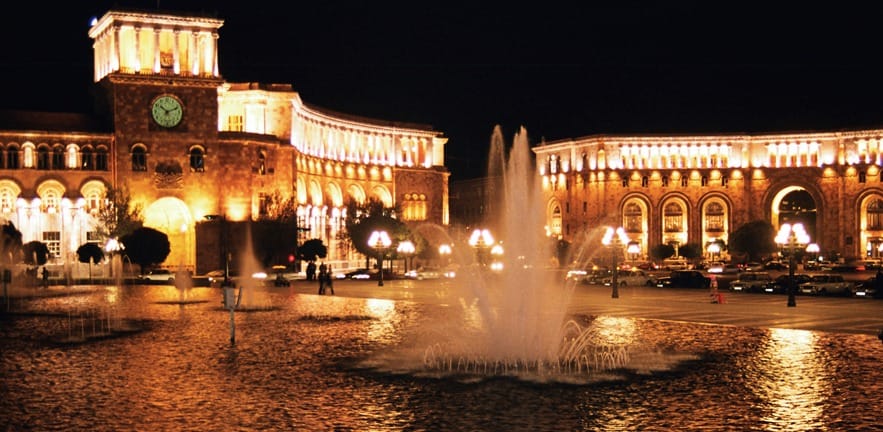
“We want to create a confident generation to think big and to dream big,” says Jacqueline Karaaslanian, Executive Director of the Luys Foundation. Through loans and scholarships, Luys ensures that every year 100 Armenian students receive an education from the world’s most prestigious universities, putting them on par with talented scholars from around the world and setting them up to contribute to Armenia and to the world.
Four students are currently being sponsored by the Luys Foundation as they complete Cambridge Judge Business School’s Master of Finance programme, with the hope that, once qualified, they will be able to pass on their knowledge to boost the economy of the now independent Armenia.
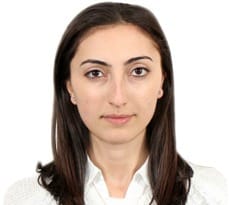
“It’s an amazing chance for us,” says Soghoyan, one of the scholarship students. “I did a degree in my home country and worked for five years in statistics at the Central Bank of Armenia. But ours is a very small and young economy and I knew that to gain experience I would have to study abroad. I wanted a quality course in an English-speaking country that would help me gain international experience, and Cambridge was perfect.”
The sponsorship provided by Luys is essential. For many Armenians, funding an education abroad is an insurmountable barrier, says Tatevik Muradyan, another benefiting from the scholarship. She has worked for the past decade in the Armenian insurance market, including roles as project manager for the government’s Ministry of Economy and latterly executive director of the Export Insurance Agency. “But I realised I was a generalist – I have a broad experience of general management and insurance but I realised it is time for me to find a specialism, and I decided to do that at one of the best universities in the world. I was also lucky enough to become one of the two recipients of the newly launched Chevening-Luys joint scholarship co-funded by the Foreign and Commonwealth Office of the UK government.”
“It’s a great initiative to develop the regions of Armenia,” adds Soghoyan, 27. “The capital city Yerevan is so much more developed than the rest of the country. By taking the knowledge back we can really boost these other areas.”
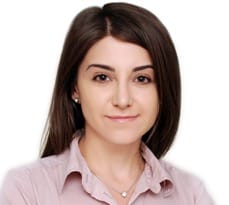
Armenia has an ancient and rich culture with a complex history. It is one of the earliest Christian civilizations surrounded by countries that are predominantly Muslim. “Armenia is a country with a turbulent history,” says Karaaslanian, referring to events such as genocide by the Ottoman Empire, incorporation into the Soviet Union, gaining independence 25 years ago, a war with Azerbaijan and the recent global economic crisis. “It has always had to react rather than enjoy the opportunity to plan ahead. The Luys Foundation enables the new generation to spread its wings and plan the future.”
The Foundation was established in 2009 by Armenian President Serzh Sargsyan and Tigran Sargsyan, Prime Minister at the time and presently Chairman of the Eurasian Economic Commission. It pays for the education of students from Armenia or of Armenian descent after they are accepted on their own merit at one of the world’s top 10 universities.
Students who gain admission at a recognised institution receive funding and enter in a contractual agreement that asks them to spend their summers in Armenia. During that time they are asked to design and work on projects that implement their newly acquired knowledge to solve real life problems.
Interestingly, there is no obligation for the Luys students to return to Armenia. Indeed, with three times as many Armenian nationals living outside the country as inside, the foundation views its students as “global citizens” who don’t necessarily need to return to Armenia to empower their countrymen and women.
“We like to think of it not as a brain drain, but as a brain circulation,” says Karaaslanian. “We are building a rich network of people who are able to think differently. We are living in a knowledge economy but ours is a captive economy – knowledge has to circulate to get rich. You have to travel to broaden your horizons.
“But you do also have a responsibility to practice educational philanthropy. The motto of Luys is “Learn, do, co-create,” so we do encourage our students to come back. If they don’t – well, in this connected society it doesn’t necessarily matter where we live, what matters is that we continuously work together. When you, as an Armenian, do well anywhere it benefits everyone, so you need to be an active participant. About 70 per cent of graduating scholars choose to come to Armenia and pass on their knowledge.”
Some look further afield after hitting what Karaaslanian describes as a “glass ceiling” in their own country. In the past, if someone who may never have dreamt of getting accepted into a great university due to financial limitations, now they can. Armenian students are no longer dependent on their circumstances, just on their academic capacity.
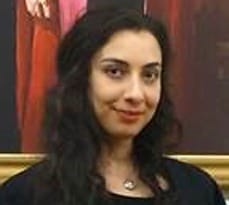
Anahit Papyan, 27, did her internship at Cascade Investments (now America Asset Management), which was the first Armenian company to launch asset and investment management services. She then went on to KPMG Armenia and Deloitte Armenia, but says an education at Cambridge is necessary to develop both herself and her country’s investment market.
“Armenia is an ethnically homogeneous country – 98 to 99 per cent of the population were born here,” she says. “Studying abroad is giving me a broader understanding of different cultures and new perspectives on the general global business culture.
“By returning to Armenia, students bring fresh ideas and help to incorporate the western business and working culture in the offices where they start working. And this is important for Armenia, which is not well integrated with the world economy and its financial markets. By returning, we serve as a small part of a bridge between Armenia and the Western world.”
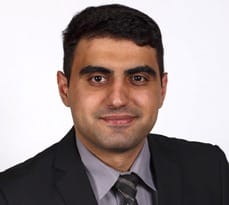
Arman Abgaryan, 23, was an auditor at Deloitte Armenia. “I wanted to go into investment banking – and there is currently no such market in my country. But Cambridge is fantastic – the theoretical and practical aspects are outstanding, the quality of the professors is excellent and there are so many networking opportunities. I would like to stay in the UK after I finish my studies to get a couple years’ experience, but it is very important to use my experience to help my country.”
Muradyan agrees. “We all want Armenia’s economy to develop – it is good for all of us. Because it is such a young economy, any change to the political and financial landscape happens very quickly, so the more people have the skills to deal with that the better.”
On a personal level, the students are currently enjoying the broader horizons that Cambridge offers. “I am exposed to so many different cultures here,” says Papyan. “I love Cambridge – there are so many stories and legends connected with every corner of the city.”
Soghoyan also loves the diversity. “You don’t just learn from the professors, but from everyone in the room. There are people from so many countries, of so many ages and backgrounds. It’s such a vibrant environment.” She is already committed to passing on her knowledge. “I’ll be returning to Armenia to spend some time teaching others what I have learned,” she says. “Ultimately I would like a job in Europe or perhaps Australia but I think it is important that Armenia benefits from the opportunity I had.”
Muradyan is just as keen: “The idea is to create a professional network of Armenians across the world. It’s an excellent mission which will help our country to grow and develop and I would be very proud to be part of that.”

